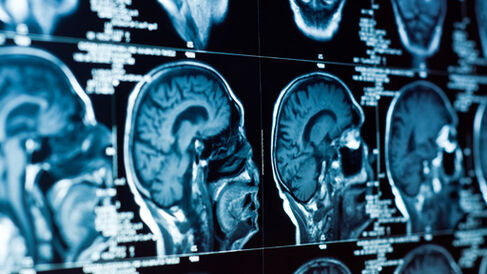£500K translational funding bid success for development of a real-time brain chemistry sensor

With the support of industry Expert-in-Residence Dr John Pritchard, Research Fellow Dr Tanya Hutter led a successful application to the NIHR Invention for Innovation (i4i) Challenge Awards, which are themed calls for funding in areas of unmet clinical need.
Head injury is the leading cause of death amongst under-40s years in the developed world. After the initial traumatic event, the greatest clinical challenge is to limit secondary insults to the brain. Complex changes in the brain’s chemistry often occur as a result of injury; successfully managing these dynamic events can vastly improve patient outcome.
The pressure and oxygen level in the brain can already be measured using real-time analysers; however, the analysis of brain chemistry can only be assessed hourly, with significant implications for the timescale of therapeutic intervention and ultimately on the patient outcome. Moreover, this process is labour intensive as the samples have to be manually transferred to the bedside microdialysis analyser every hour, for several days.
A University of Cambridge team led by Professor Peter Hutchinson, Professor of Neurosurgery, and Professor Stephen Elliott, Professor of Chemical Physics are working to introduce a new method, which would lead to more rapid treatment responses in critical clinical situations, reduced costs, increased automation and a greater understanding of the pathology of traumatic brain injury in both children and adults. They have established proof-of-concept in the laboratory for a novel real-time sensor for three of the most important brain metabolites monitored following injury. The new biomedical sensor will allow rapid changes in brain chemistry to be monitored to permit more rapid treatment while also identifying secondary neuronal injury. It does not require the expensive consumables used in existing bedside microdialysis analysers and eliminates the need for staff to carry out and analyse the samples.
Tanya Hutter, who works in the Elliott group in the Department of Chemistry, told us: “The meeting with John was extremely useful. He helped us understand the process of medical device development, to define a commercialisation plan, specific project steps and timeline. It’s really important to know this early on in the development to ensure successful translation of research to the clinic.”
The grant awarded was in excess of £500,000. Using this funding the team will carry out further laboratory work to optimise the sensor, which will then be trialled and ultimately used online at the bedside.
